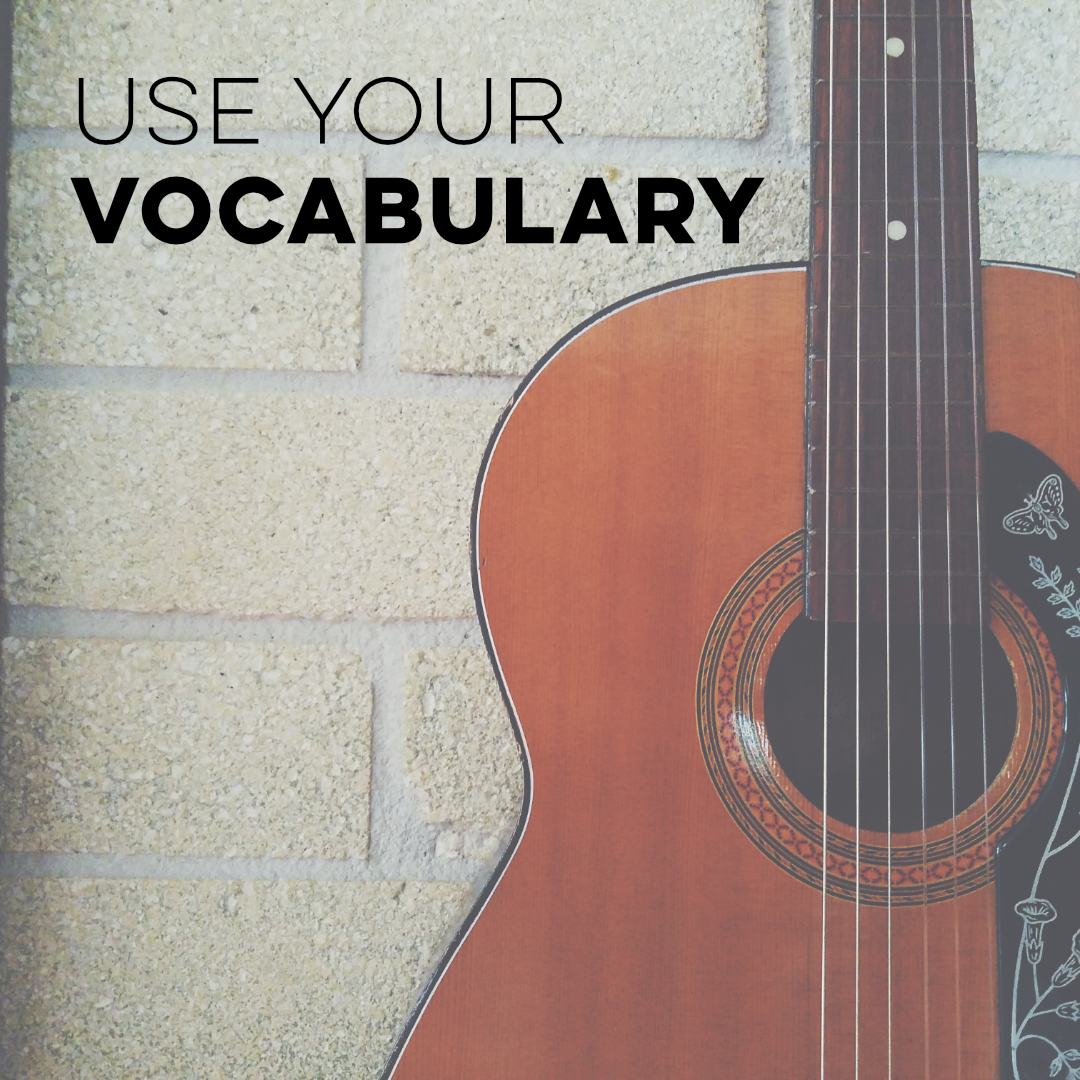How do you use your vocabulary?
 How good is your vocabulary? As you mature, hopefully your word bank is filling. But regardless of how many words know, you use them to connect with other people! I want to suggest that learning songs is like building your vocabulary. The longer you’ve lived the more songs you’ve had time to learn. You may have learned thousands of songs, but do they help you connect to God and His people?
How good is your vocabulary? As you mature, hopefully your word bank is filling. But regardless of how many words know, you use them to connect with other people! I want to suggest that learning songs is like building your vocabulary. The longer you’ve lived the more songs you’ve had time to learn. You may have learned thousands of songs, but do they help you connect to God and His people?
Music in worship is about so much more than just music. First it’s about communicating to God – it’s collective prayer in song. We worship, confess our sin and need for God’s grace, we cry out and ask for His work in our lives and in His world. We are not singing for each other primarily (although your singing can affect me and vice versa, but more on that in just a minute). Just like in heaven, Jesus is the center of attention. Read through the book of Revelation to see how many times we will be gathered around Jesus singing to Him.
I have heard people yearning for what’s familiar to them – whether it’s older hymns, or just songs that we sang at Trinity 10 years ago, or a song they knew at another church prior to being with us. But the reality no one can avoid is that every song was once a new song. Everybody has to learn, and learning takes effort. Every generation can point to songs that another age group knows and likes. And anyone can lament that not singing is tied to not knowing a song, but I will ask, are you willing to put forth effort to try to learn? Learning takes time and exposure to a song’s words and melody, but most of all, it requires a willing, teachable spirit. Finitude is a problem. Even if you know hundreds of psalms, hymns and spiritual songs, still in a year with 52 weeks, where we average 5 songs a week, at Trinity we will sing only about 260 songs in a year – repeating many of them. So in actuality we will probably only sing from a list of about 100 or so songs in a given year. By finite limits there is simply no way we can sing every great song, let alone sing it a lot.
Now, let’s go back to the point about how your singing can affect me and vice versa. Singing is undeniably about community. Songs are markers of a shared set of beliefs, a shared mission and a shared sense of belonging. This is just one reason why people can feel like they fit – or why people can feel like they don’t fit in. But a willingness to learn allows anyone to fit in. If you're willing to dive into a song you don't know, it's far more likely that the new person sitting next to you will join you as we all learn together, joyfully.
The most significant issue is that you connect – with the Lord and His people. We want you to know what we sing, why we sing, but most of all we want you – and others who do not yet believe – to sing with us because we have the best reason ever to sing: Jesus and His redeeming love.
Things to pray for:
– Wonder. Praise God for His surpassing worth, beauty, glory and holiness. He is the most amazing Person in all existence and He is worth singing to.
– Gratitude. Give thanks to Jesus for the amazing story of His coming to this earth to save people like us. Thank Him for entering into suffering and for victoriously coming out of it in His resurrection.
– Humility. Ask the Lord to help you to see the marvelous story of so many other people that He is gathering into His family, and to energetically sing with them as we all learn together.
– Love. Ask the Lord to help you to show His love to others who desperately need hope in Christ.
Tim Rice, Lead Pastor & Director of Church Planting
More in Announcements
April 18, 2024
I know this seems really odd, but ...April 5, 2024
How do you feel about seeking something that's lost?March 14, 2024
Continuity and Change